Art World
‘Alt-Right’ Violence in Charlottesville Fuels New Calls to Remove Confederate Monuments
Southern public officials decry the violence over a monument to Robert E. Lee in Virginia.
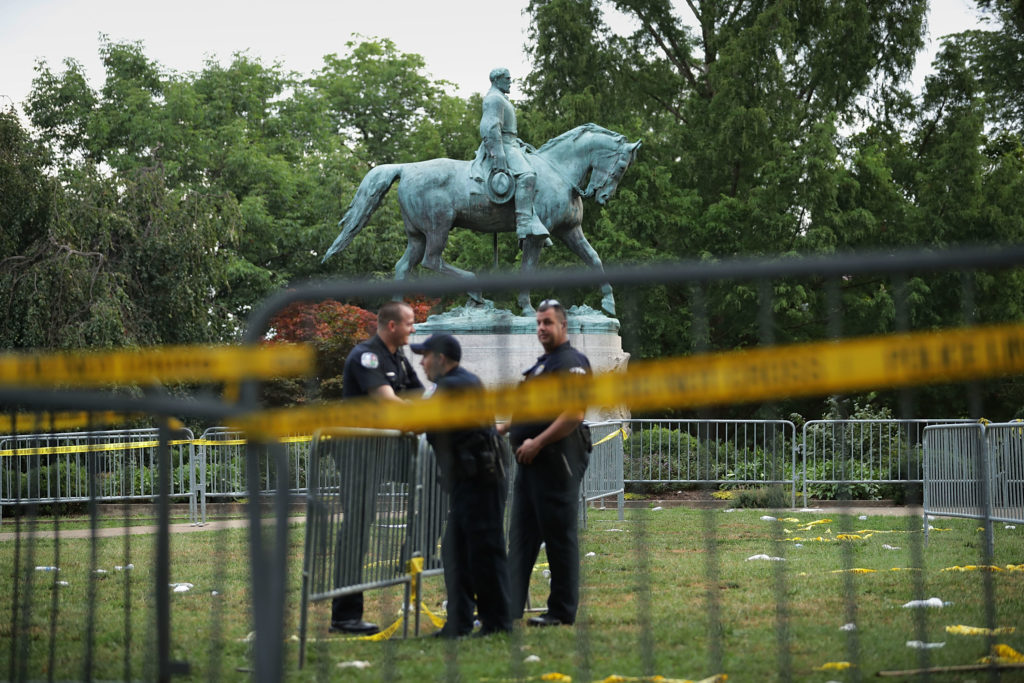
Southern public officials decry the violence over a monument to Robert E. Lee in Virginia.

Brian Boucher

Confederate monuments are at the center of discussions in the wake of the violent demonstrations by neo-Nazis, white nationalists, and other extremist sects of the so-called alt-right in Charlottesville, Virginia, this weekend.
The far-right groups descended on the college town as part of a “Unite the Right” rally to protest the removal of a Robert. E. Lee monument from Emancipation Park. But after a day of violent clashes—leading to three deaths and dozens more injured—officials in Southern cities are now renewing calls to remove Confederate monuments from public grounds.
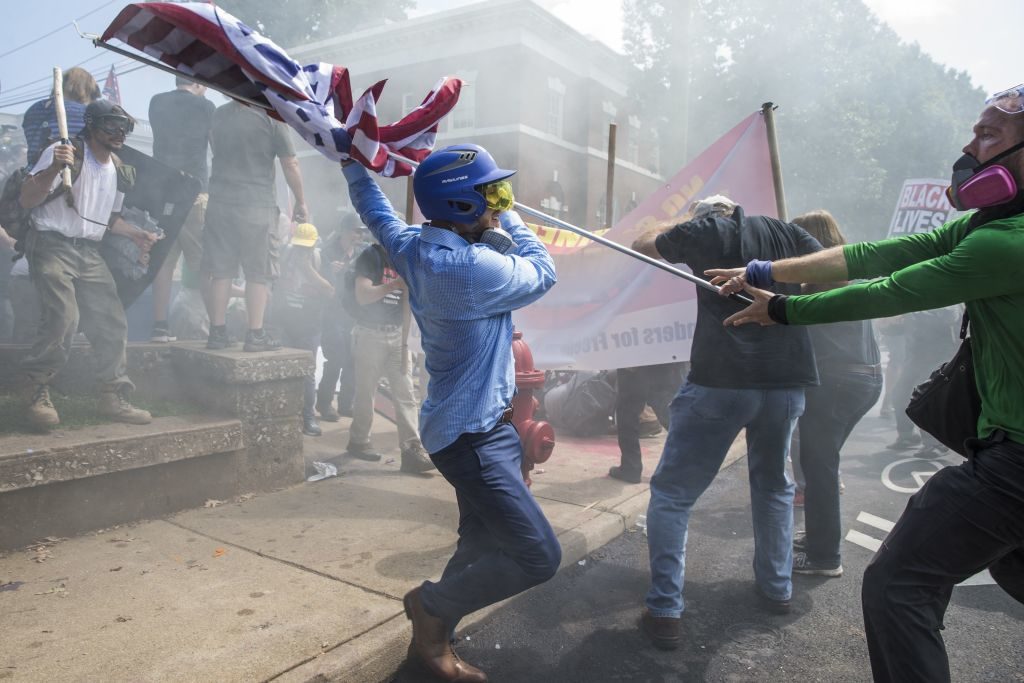
A white supremacist tries to strike a counter protestor with a white nationalist flag during clashes at Emancipation Park, where white nationalists were protesting the removal of the Robert E. Lee monument in Charlottesville. Photo by Samuel Corum/Anadolu Agency/Getty Images.
Since the 2015 mass murder of nine parishioners at Emanuel African Methodist Episcopal Church in Charleston, South Carolina, by avowed white supremacist Dylann Roof, Southern cities and towns have seen a new push to relocate Confederate monuments. New Orleans officials began to take down that city’s monuments in April, under cover of night and with protection by police snipers, as CNN reported. In an essay in the Atlantic, New Orleans Mayor Mitch Landrieu wrote that installing such statues constituted acts of terrorism, “as much as a burning cross on someone’s lawn.”
Now, in the aftermath of the violence in Charlottesville, more public officials are joining the wave.
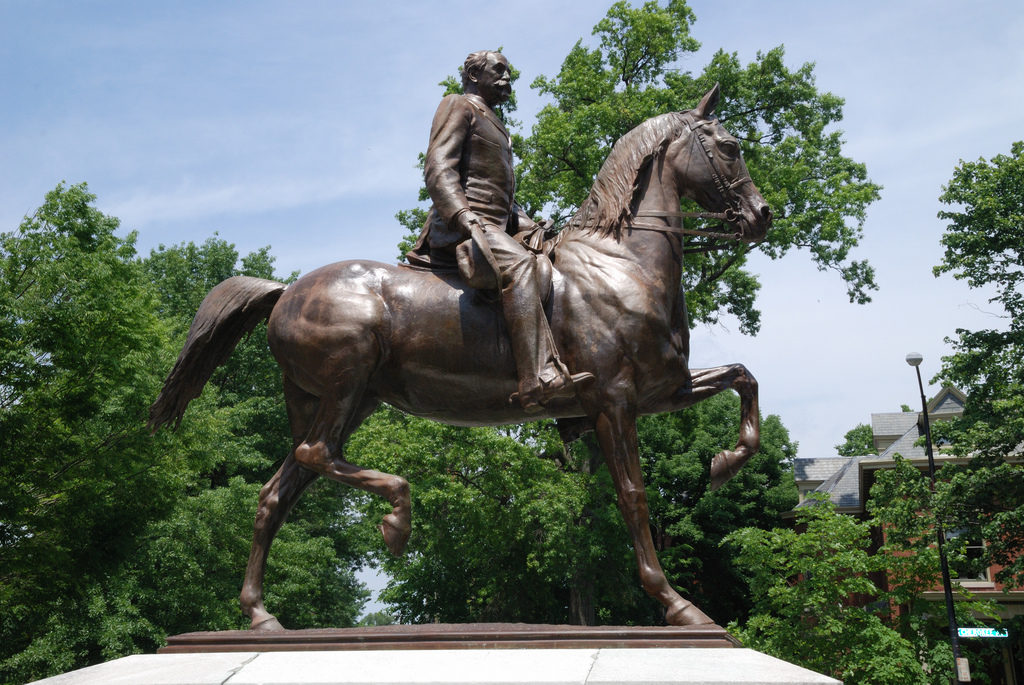
A monument to Confederate officer John Breckinridge Castleman, in Louisville, Kentucky. Courtesy Louisville Images, via Flickr.
On Monday, Michael E. Busch, speaker of the House of Delegates of Maryland, told the Baltimore Sun that a statue depicting US Supreme Court Justice Roger B. Taney should be removed from the lawn in front of the State House. (Taney authored the infamous Dred Scott decision of 1857, which held that African-Americans could not be US citizens.) Baltimore’s mayor, Catherine Pugh, has gone so far as to inquire with local contractors about the removal of several monuments.
In Kentucky, Louisville Mayor Greg Fischer has called on local officials to inventory any art owned by the city that might be seen as advocating “bigotry, racism, or slavery,” according to local ABC affiliate WHAS. The Louisville Commission on Public Art will prepare the list ahead of a “community conversation.” One result of that conversation could be relocation: In 2016, a Confederate monument in the city was relocated to a Civil War historic site, according to WHAS. The station also reported that a local statue of Confederate officer John Breckinridge Castleman was vandalized on Sunday.
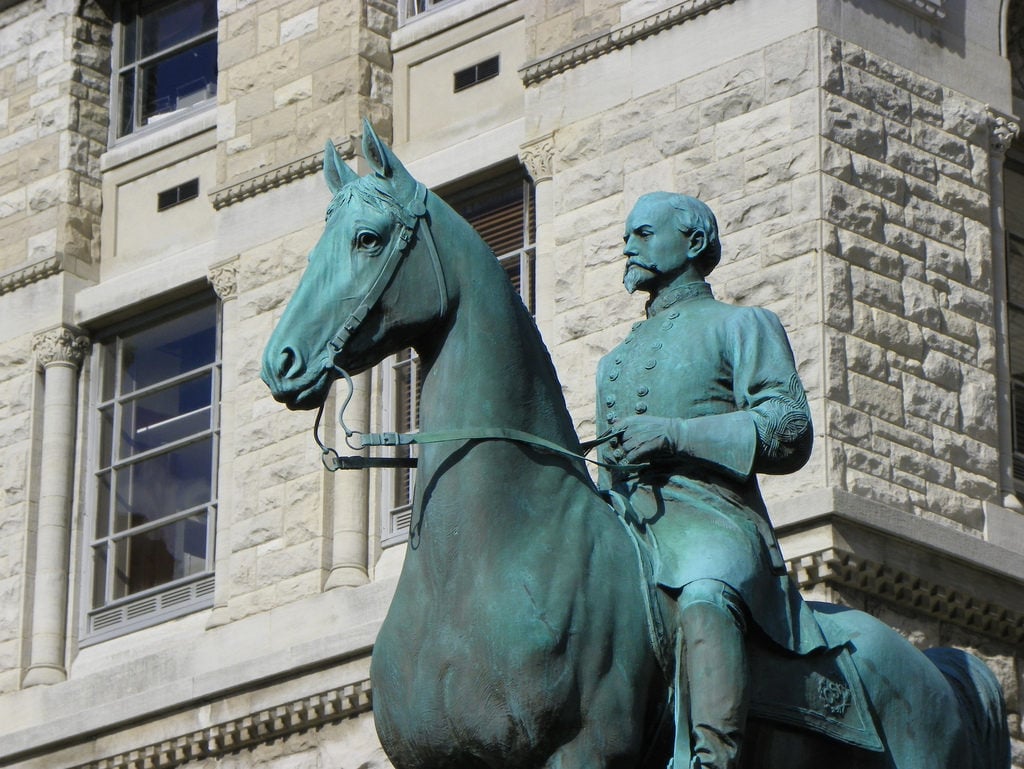
A monument to Confederate General John Hunt Morgan in Lexington, Kentucky. Photo by J. Stephen Conn, via Flickr.
Also in Kentucky, Lexington Mayor Jim Gray announced plans on Saturday to remove two Confederate-era statues from the grounds of a former county courthouse, according to the Lexington Herald-Leader. One of the statues commemorates Confederate States Secretary of War John C. Breckinridge; the other memorializes Confederate General John Hunt Morgan.
“We have thoroughly examined this issue, and heard from many of our citizens,” Gray said in a statement. “The tragic events in Charlottesville today have accelerated the announcement I intended to make next week.”
In Durham, North Carolina, at least one group of demonstrators decided they couldn’t wait for the city to act. On Monday, protesters chanting “No Trump, no KKK, no fascist USA!” stormed the site of a monument of a Confederate soldier outside a city courthouse and toppled the bronze statue from its base, according to HuffPost.
In Nashville, the Tennessee capital, protestors gathered on Monday at a monument to Nathan Bedford Forrest, a slave trader, member of the Ku Klux Klan, and a lieutenant general in the Confederate Army. They then marched to the office of the Republican Governor, Bill Haslam, demanding the bust’s removal. Haslam announced on his website that “My position on this issue has not changed—I do not believe Nathan Bedford Forrest should be one of the individuals we honor at the Capitol.”
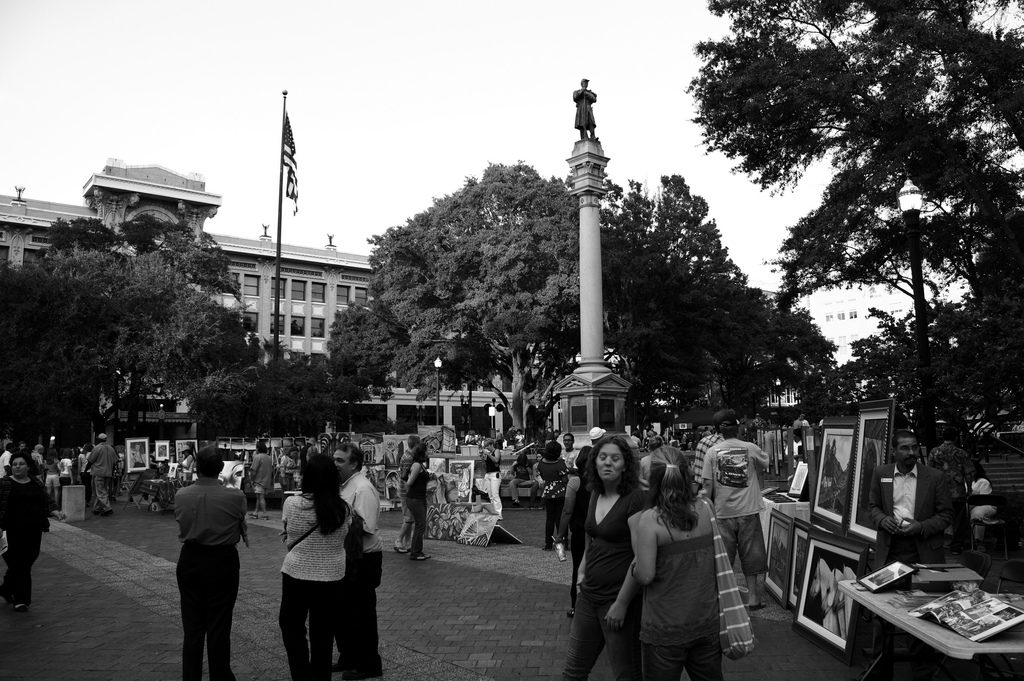
Hemming Park, in Jacksonville, Florida, with a monument to a Confederate soldier. Photo by Jeff Wright, via Flickr.
Also on Monday, Anna Lopez Brosche, president of the city council of Jacksonville, Florida, proposed that a 62-foot-tall monument in that city’s Hemming Park, depicting a Confederate soldier, be removed.
“It’s really important to me that we recognize that we have part of the community who sees the monuments, markers and memorials as part of our history, part of our heritage,” Brosche told the Florida Times-Union. “It’s also really important to me to recognize that there’s a part of the community that views these memorials and markers as a symbol of times that evokes some really negative emotions and pain and hurt.”